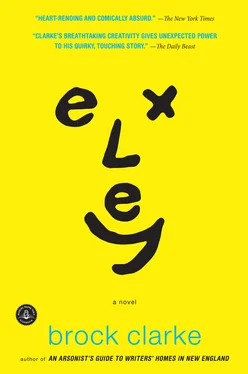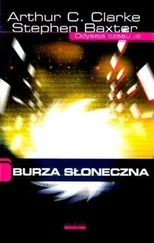Doctor’s Notes (Final Entry)
I’m drinking coffee, surveying the inebriated wreck I’ve made of my office, when the phone rings. The phone is on the floor. It is ______ in the evening. Surely it’s not …, I think. But I pick up the phone, and it is.
“I’m at the VA hospital,” she says. Her voice sounds full of wonder, and also dead, like a corpse that can’t believe it really isn’t still alive. “I just saw T. in his room.”
“I’m sorry,” I say, and my voice also sounds dead, like a corpse that can’t bring itself to hope that there’s still someone out there who can bring it back to life.
“They say he’s probably going to die,” she says.
I don’t know what to say to that, so I say what everyone says: “Miracles happen every day.”
“No, they don’t,” she says. “And it’ll be my fault.”
“No, it won’t,” I say. Because it won’t be.
“M. loves his dad more than anything in the world,” she says.
“I know,” I say. “I’ve never seen anything like it.”
“If T. dies, then M. will think it’s his fault,” she say. “It’ll kill him.”
“Not literally,” I say. “But yes, M. will blame himself.”
“The only way he won’t think it’s his fault is if I tell him it’s mine,” she says. “If I tell him about K.”
“Yes,” I say.
“And then he’ll hate me.”
“Yes,” I say.
“And that will kill me.”
Not literally , I almost say but don’t. Because maybe it would literally kill her. Because we don’t know what’s going to kill us — whether it’ll be a kiss, a bottle, a book, a bomb — which is why we keep trusting people who say they can save us, whether it’s a writer, a father, a mother, a lawyer, a son, a soldier, a lover, or a mental health professional.
“Can you help me?” she asks.
“I’ll try,” I say. Then I hang up the phone and once again survey the wreck of my office. I reach down to right my couch and notice a book on the floor. I pick it up and read the title ( Misfit: The Strange Life of Frederick Exley ) and the author’s name (Jonathan Yardley) and begin to remember things: I remember M. barging into my office, I remember him calling someone on the telephone, I remember talking to someone on the telephone, I remember getting the distinct impression that whoever I was talking to on the telephone wasn’t going to be satisfied with merely talking with me on the telephone. I remember enough, in other words. I quickly straighten up my office and then begin to read this Yardley’s book, quickly, quickly, because I know that it’s only the first of many things I have to accomplish that night to get ready for what happens next.
Things I Learned from My Dad, Who Learned Them from Exley (Lesson 6: What Are the Giants?)
This was last year, on my birthday. My first class that day was math. Last year was the year I’d been promoted from third grade to seventh, and I’d been doing well in everything but math. Math in seventh grade was algebra, and the only thing I really understood about algebra was how to spell it. Up until my birthday, I’d gotten only Cs and Ds in math, and every time I got a C or a D, I would cry, and my teacher, Mr. McM., would try to comfort me by saying, “It’s not the end of the world,” and then he’d also remind me, “You’re not in third grade anymore, Miller.” Mr. McM. was just one of the many things about math that I found confusing.
Anyway, Mother had been home to wish me happy birthday that morning, but my dad hadn’t. He’d already left the house, Mother had seen him go, but she didn’t know where he had gone. This depressed me, my dad not being home to wish me happy birthday first thing in the morning, and it doubly depressed me because he’d gone out somewhere the night before and hadn’t been around to put me to bed, either. So I decided to leave the house early and go to school, even though my first class that day was math and we were supposed to have a test that day and I was pretty sure I was going to get another C or D on that test, too.
Mr. McM. wasn’t in class when I walked in. Instead, sitting with his feet up on Mr. McM.’s desk, was my dad. On the desk next to his feet was a big plastic cup, the kind you get at the gas station with your full tank. My dad was reading A Fan’s Notes . I didn’t say anything at first. I closed my eyes, then opened them, closed them and opened them. I’d seen a deer do that once, when it busted through our kitchen door and saw my family eating dinner at the table. The deer closed its eyes, opened them, closed them again, opened them, and then, deciding we were real enough, turned and ran back out the door.
“What are you doing here?” I asked.
My dad lowered his book just a little, so that I could see his eyes. They were smiling at me. They were so red and unfocused that it made me wonder what he was drinking out of his cup and how long he’d been drinking it.
“‘The Giants were my delight, my folly, my anodyne,’” my dad said.
I recognized the line from A Fan’s Notes , but I didn’t want my dad to know I’d read the book when he’d told me not to, so I said, “Huh?” And then: “Dad, what are you doing here?”
Just then my classmates started filing in, and my dad didn’t get a chance to answer me. Not that he paid any attention to them. He kept reading his book with his feet on the desk as they walked to their seats. None of the kids in my seventh-grade math class even noticed that my dad, and not Mr. McM., was sitting behind the desk. It was first thing in the morning, and no one was really awake yet. Besides, it was November. By this time, everyone knows that school isn’t going to be as terrible or as great as you thought it would be. The bell rang. Still, my dad didn’t seem to be paying attention to us. But by now, everyone had noticed him. I could hear low, concerned grumbling with question marks at the end, although I don’t think anyone in the class recognized him or knew he was my dad. I didn’t have any friends in the class, after all, and besides, my dad wasn’t the kind of guy who usually picked me up after school or went to parent-teacher conferences.
“So where’s Mr. McM.?” L. finally asked. L. was the only person in my eighth-grade advanced reading class who’d also been in my seventh-grade algebra class.
My dad looked over his book at L. and said, “He’s probably ruddy with shame. He’s probably literally sick, dropping to his hands and knees to throw up in the toilet bowl. He’s probably cursing himself for not having bought another six-pack, an abstinence imposed upon himself under the idiotic pretense that he is not a drunk.”
Most of that was from A Fan’s Notes , too, from one of the times Exley woke up drunk in his book. I was starting to get it. And I would get even more of it when my dad explained to me later on that he knew that Mr. McM. drank at a bar called B.J.’s every night. So my dad had gone to B.J.’s the night before and gotten Mr. McM. so drunk that Mr. McM. couldn’t possibly teach class the next day, so drunk that he agreed to let my dad teach for him and administer the test he was supposed to administer. He even told my dad he could grade the tests and enter the grades in Mr. McM.’s grade book if my dad wanted. I didn’t know all the details at the time, of course, but I was starting to guess a little of what was going on. Everyone else in the class, though, seemed stunned. Every September, we had an assembly and were lectured about “stranger danger.” We were even given flyers telling us what to look for, what to do, who to call. No one ever listened to the lecture. We made paper airplanes with the flyers. Now I wondered if my classmates wished they’d kept the flyers. There was something adult and creepy about what my dad was saying; even I thought so, and he was my dad.
Читать дальше












